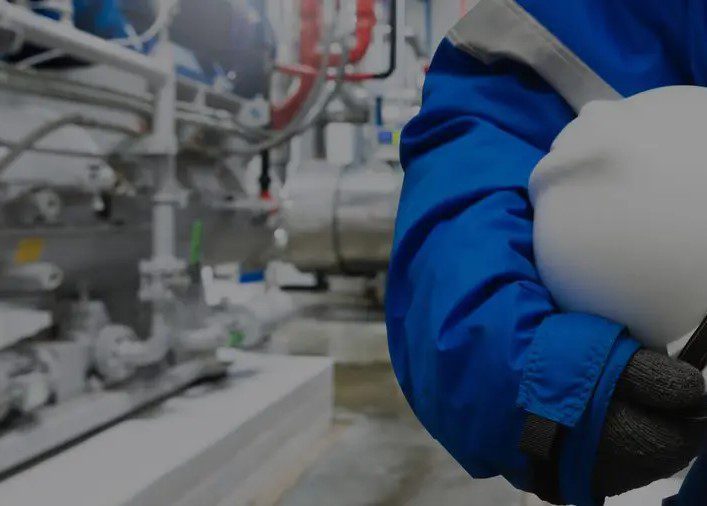
From Batch to Continuous: How Food Manufacturers Can Scale Production with Confidence
Batch Production Limits Growth
Batch production has its place, but let’s be honest, it’s not built for the demands of modern food manufacturing. Stopping and starting production lines costs valuable time. Cooling, chilling and freezing capacity is capped. Products pile up, waiting for the next available stage in the process.
The result?
- Missed delivery deadlines.
- Higher operating costs.
- Inconsistent product quality.
- Frustration when demand surges but capacity won’t budge.
For manufacturers competing in frozen and chilled food markets, these bottlenecks become deal-breakers.
Continuous Production Unlocks New Possibilities
Now picture this: instead of waiting for one batch to finish before starting another, your production line runs continuously. Product flows seamlessly from one stage to the next, prepped, frozen, cooled and packaged without interruption.
That’s what continuous production delivers. It means:
- Higher throughput with the same floor space.
- Consistent product quality thanks to uniform freezing, chilling and cooling.
- Lower labour costs by reducing stop-start inefficiencies.
- Capacity to scale instantly when orders increase.
It’s the difference between treading water and powering forward with confidence.

How Korutek Makes It Practical
Shifting from batch to continuous production isn’t just about adding new machines. It’s about creating a system that works together seamlessly. That’s where Korutek comes in.
Built-in Automation
Our systems can be equipped with CIP (Clean-in-Place) technology, meaning cleaning can happen automatically without dismantling equipment. This reduces downtime and makes hygiene compliance effortless.
On top of that, RCM (Remote Condition Monitoring) gives manufacturers predictive maintenance capability. Instead of waiting for something to break, potential issues are flagged early, saving time, money, and headaches.
Spiral Freezers, Chillers, Coolers, IQF and Inline Systems
These are the backbone of continuous production. Our spiral freezers and chillers can handle a wide variety of products, from baked goods to meat and ready meals, running around the clock with minimal operator input. Inline and IQF (Individual Quick Freezing) systems keep food moving without bottlenecks, ensuring high capacity without compromising quality.
Retrofit Enhancements for Evaporators
Continuous production also means equipment can’t afford to stall. That’s why we offer retrofitted solutions:
- Air Balance Systems maintain even airflow, preventing temperature fluctuations.
- Air Snow Removal Systems stop frost buildup, keeping lines clear and efficient.
- Sequential Defrosting ensures evaporators stay frost-free without halting production.
Together, these technologies eliminate one of the biggest risks in continuous production: unscheduled downtime.
Real Impact for Food Manufacturers
Let’s make it real.
- Ready-meal producers can meet supermarket surges without scrambling for temporary staff. Instead of pausing production to clean or defrost, systems stay online and consistent.
- Bakeries and Meat processors can move from producing in small batches to continuous runs, freezing, chilling and cooling products continuously to keep shelves stocked even during seasonal peaks.
- Fruits and Vegetables processors benefit from advanced automated IQF systems that maintain product separation and quality while scaling up throughput.
The common thread? Higher capacity, lower waste, and fewer bottlenecks.
The Bigger Picture: Scaling Without Limits
Scaling up from batch to continuous production isn’t just about efficiency – it’s about resilience. With labour shortages, stricter regulations, and rising demand, the manufacturers who thrive are the ones who can guarantee uninterrupted output.
At Korutek, we don’t just sell equipment; we design solutions that make continuous production practical and sustainable. From spiral freezers and chillers to retrofit evaporator technologies, our systems are built to run reliably, cleanly, and at scale.
So when demand increases, you won’t just be keeping up. You’ll be leading the way.
Table Of Content
Korutek Engineering Systems
Korutek build spiral freezers and chillers for the biggest food manufacturers around the world. If you’re looking for a team with a global reach that is able to provide industry-leading design and build services, contact Korutek today.
Compact Spiral Series
The Compact Spiral Series, consists of the 300 (CPS300), 450 (CPS450) and the 600 (CPS600) models.
Compact Inline Tunnel
The system operates as one system using one, two or three separate inverter-controlled conveyor belts.
Spiral freezer systems
We are new system specialists, operating and consulting with the largest food industry manufacturers, all over the world.
Spiral chiller systems
Korutek Engineering are new spiral chiller specialists, operating and consulting with the largest food industry manufacturers.
Spiral cooler systems
We are new spiral cooler system specialists, manufacturing for and consulting with global food industry companies.
IQF freezers
We are an IQF freezer specialist, operating and consulting with some of the largest food manufacturers across the world.
Freezer Leasing Solutions
Revolutionise Your Food Production with Korutek's Freezer Leasing Solutions.







